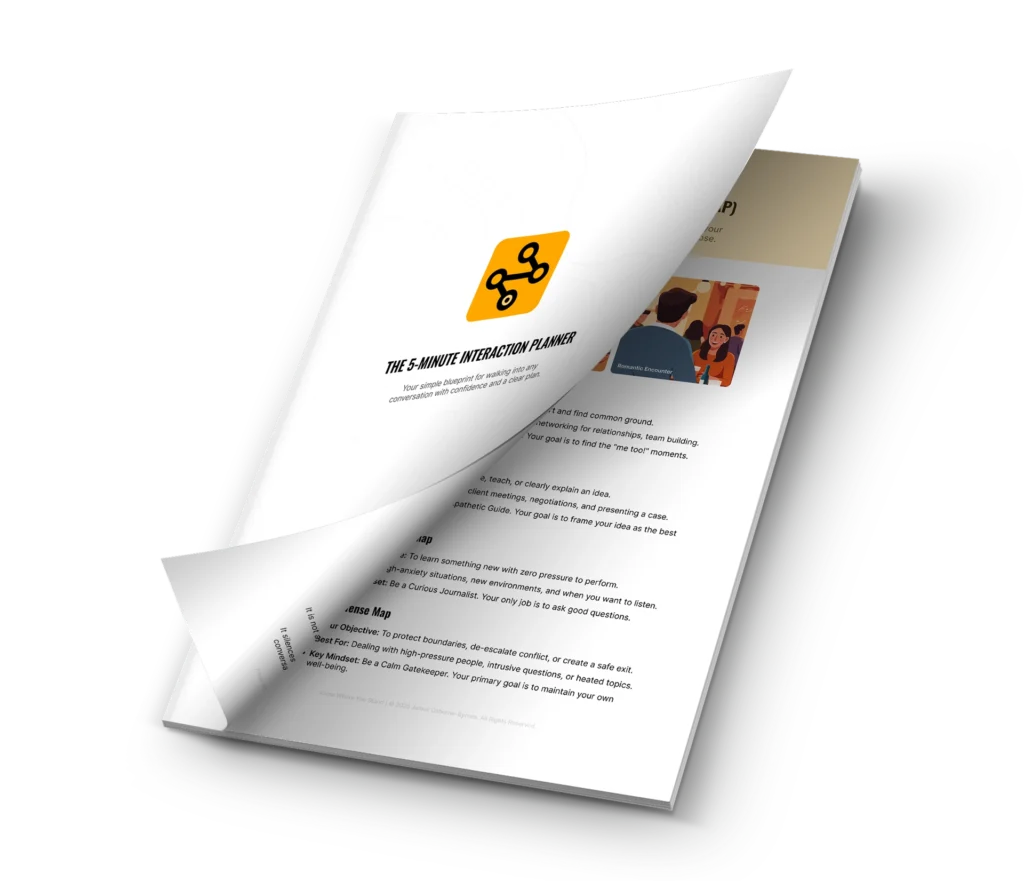The tools for genuine influence and cynical manipulation often look identical. This creates a defining question for anyone sharpening their social skills: are you building bridges or setting traps? This is a fair question, and the answer is the core challenge in developing ethical social skills.
This guide provides the foundation for our entire system. It is a non-negotiable ethical structure to help you use these skills for good. It separates genuine connection from calculated control and starts with one core idea called the Martial Arts Principle.
The Martial Arts Principle as a Foundation for Ethical Social Skills
This principle provides the grounding philosophy for every tool we examine. It reframes the entire purpose of social awareness and answers the social skills vs. manipulation question.
The Core Principle Explained
These skills are not for winning social battles. They are for building bridges and developing mutual understanding. The distinction between social skills and manipulation lies entirely in your intent. One seeks to connect, the other seeks to control. We built this system exclusively for connection, focusing on shared understanding rather than personal gain.
Breaking Down the Analogy for Clarity
The comparison to a martial art isn’t about fighting. It’s about the discipline and mindset behind the practice.
- A true martial artist’s training emphasizes discipline over dominance and is for inner harmony and self-control, not for seeking out fights. Similarly, these social skills are for mastering yourself, not for dominating others.
- De-escalation is a form of mastery. A martial artist’s highest skill isn’t winning a fight but using awareness to de-escalate a situation so that no fight is necessary. True social mastery is about preventing conflict, not winning it.
- The skills are for defense, not aggression. They are for self-defense and the protection of others, never for unprovoked aggression. This is the heart of non-manipulative communication.
The Proof is in the Tools
Any system can claim to be principled, but the real evidence is in its design. The tools themselves provide this evidence.
The Pro-Social Design of the Four Social Maps™
The very structure of our core toolkit, the four Social Maps™, points toward a pro-social intent. Three of the maps (Connection, Influence, and Exploration) are explicitly designed for positive interaction. They help you build rapport, share ideas constructively, and understand others with genuine curiosity.
The Defense Map as the Ultimate Proof of Our Philosophy
The strongest evidence of our ethical commitment is the fourth map, the Defense Map. Its entire purpose is to protect, not to attack. It provides you with the tools to:
- Protect your boundaries by learning clear methods for setting them firmly and respectfully.
- De-escalate conflict with specific techniques to manage friction without aggression.
- Enable a graceful exit by disengaging from a negative or harmful interaction while maintaining your composure.
The very existence of this map proves that the system values your safety and well-being over “winning” an argument at any cost.
Practice Intent Over Technique
This brings us to a direct, actionable challenge. The goal is an internal shift, not an external performance. It’s about feeling the martial arts principle in action.
This Week’s Direct Challenge
This exercise gets to the heart of the matter.
- Identify the moment. Find one small disagreement you have this week, whether at work, with friends, or even online.
- Set a new intention. Before you respond, consciously change your private goal. Instead of thinking, “I need to win this point,” change your goal to “My only goal is to fully understand their perspective, even if I disagree.”
- Observe the change. Notice how that small internal shift changes the feeling of the conversation. This is the foundation of building trust.
You now have effective tools and the ethical structure to guide them. This is how you move from social guesswork to confident, principled interaction. But this is the first stage of mastery. Moving beyond following the map to drawing your own is the final step in the journey from Navigator to Designer.
Your Next Step
You have the tools and the ethical compass. Now it’s time to see the full path ahead and understand the final stage of your journey.
Continue Reading the Final Part 10: The 3 Stages on Your Path to Social Mastery →



